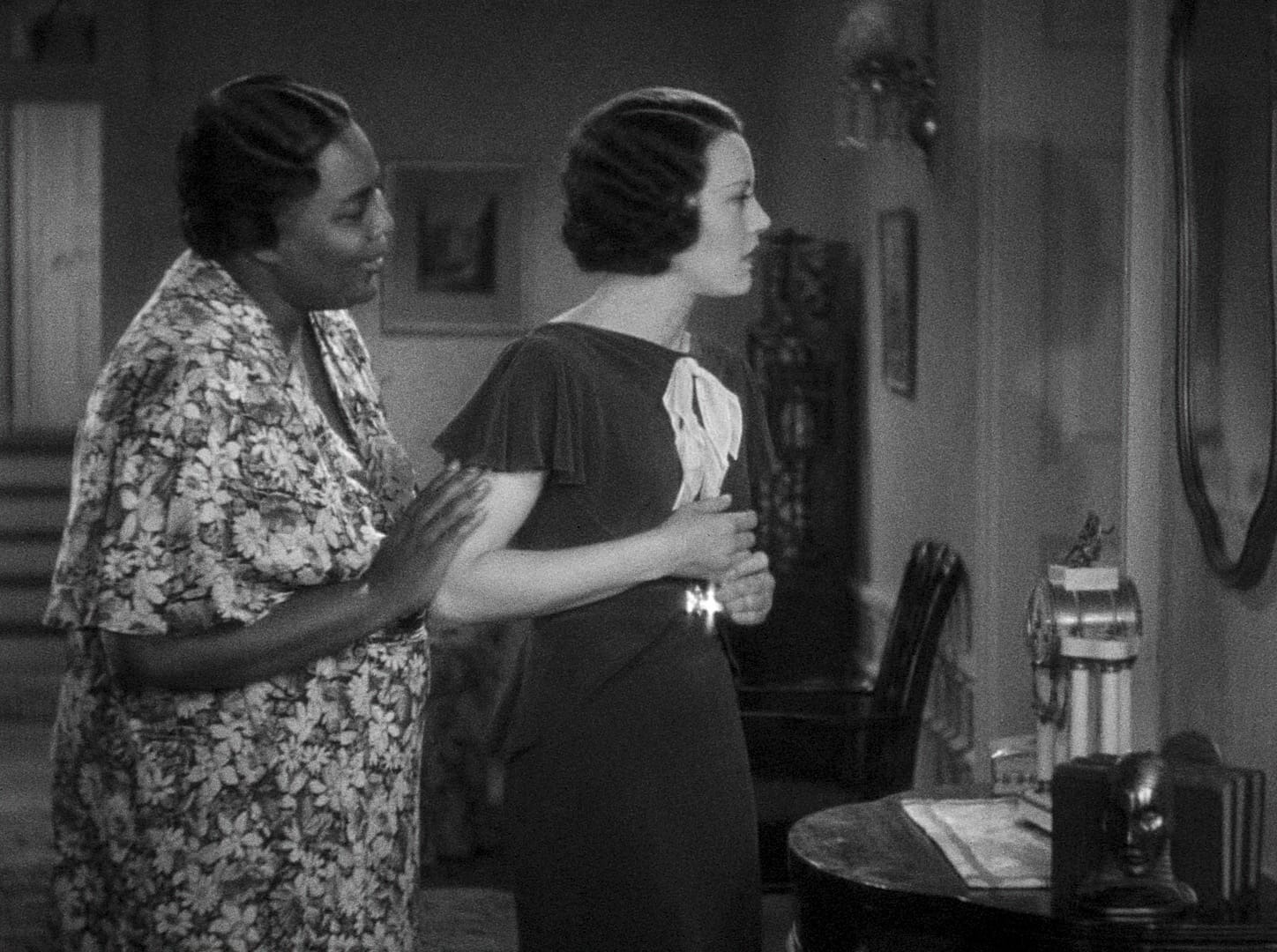RELATED ARTICLE
The Birth of a Quiet Radical: John M. Stahl’s Silent Films
The Criterion Collection

In 2005, the National Film Preservation Board of the Library of Congress added the 1934 version of Imitation of Life to the National Film Registry, its roster of “culturally, historically, or aesthetically significant” films. Archivist Ariel Schudson’s essay marking the occasion touts the film as “a defining moment in the history of women in film and a watershed moment for African American casting in Hollywood.” Directed by John M. Stahl for Universal Pictures, and based on Fannie Hurst’s best-selling 1933 prefeminist rags-to-riches novel of the same name, the film raises issues of gender roles, labor, race, identity, and the American dream in a melodramatic framework that might have otherwise been regarded as that of a mere “ladies’ picture.” Indeed, much of the film’s action focuses on the domestic sphere and the intimate, homey matters regularly dismissed as women’s work. But Stahl, like Hurst, uses domestic spaces to give audiences a closer perspective on such intimacies, employing the themes of interracial friendship and racial passing as metaphor and provocation.
The film begins humbly enough, with a close-up of a rubber duck floating in a bathtub; we hear the sound of splashing in the background, and over it an insouciant child’s voice whining, “Want my quack-quack!” The scene cuts to a white woman with short dark hair, as she pulls a small white girl from the tub and wraps her in a large towel. The two banter about the day to come, when “Mother has to work” and the unwilling baby girl must go “to the day nursery.” This domestic sketch of Bea Pullman (Claudette Colbert) and her toddler daughter, Jessie (Juanita Quigley), lasts only a few minutes before we are introduced to a Black woman, Delilah Johnson (Louise Beavers), who comes to Bea’s home in response to an advertisement seeking a “cook, laundress, housemaid, colored, not afraid of hard work, moderate wages.” As it happens, Bea has not placed the notice, and Delilah and her light-skinned daughter, Peola (Sebie Hendricks), have come to the wrong address. Still, Bea’s haphazard household—the result of her divided attention between so-called women’s work and breadwinning (through phone sales of maple syrup)—provides Delilah with an opportunity to press her case for employment. She improvises on the spot, making a neat breakfast for Jessie and the preoccupied Bea, then pleads, “If I could just get a home for my little girl, I’d be glad to work for just room and board.” Bea, initially reluctant, is ultimately won over.
Impressively, before ten full minutes of screen time have elapsed, the interracial work/living/family arrangement that forms the basis of the story has been struck between these two very different women. By 1934, Stahl was no stranger to women’s pictures; he had already directed more than two dozen films filled with romance, elopements, seductions, divorces, and female protagonists who loved and lost. But Imitation of Life’s plot included amplified social complexity: a female-headed, interracial “family,” and the taboo topic of a Black daughter who “looks” white and wishes to “pass” into the white world unburdened by Blackness.
Throughout the film, the events on-screen create an uneasy, even awkward, oscillation between the two mother-daughter pairs that constitute the center of its story. This unease was perhaps to be expected in 1934, when mainstream Hollywood offerings rarely included Black characters with plotlines consisting of their own affairs, much less featured topics that even indirectly referenced white racism or anti-Blackness. Major studios regularly deferred to the bogey of the “southern box office,” a myth that furnished white studio executives with a pretext for stereotyped, marginal depictions of Black characters. Imitation of Life’s assumptions about race and gender are often just as one-dimensional or uncritical as those of other mainstream films of its time. For example, Bea’s need to work is itself presented as a problem, one that ultimately destabilizes her family and her relationship with her daughter. By contrast, Delilah’s hunt for a job, particularly as a domestic, is so completely standard for a Black woman that she can find it codified in the newspaper’s classifieds section. Still, Imitation of Life offered an unprecedented story for Hollywood. And audiences lined up for it, with screenings extended and “held over” in nearly every major city in the United States. The movie’s popularity with Black audiences was such that Universal took the similarly unprecedented step of creating an accompanying publicity trailer specifically for segregated Black theaters, something no major studio had done for a mainstream film before.
